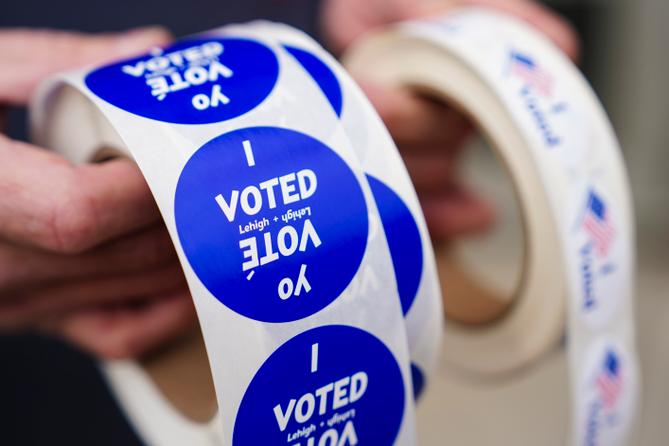Municipal Elections 101 from Spotlight PA educates readers about the local positions on their ballots and empowers them to make informed decisions. This edition is made possible through a collaboration with Votebeat, a nonpartisan news organization covering local election administration and voting.
More than 27,000 poll worker positions will be on ballots across Pennsylvania this November, allowing voters to select who will be in charge of their precincts during the 2026 and 2028 election cycles.
Only Pennsylvanians are voting for these positions. No other state still elects its poll workers, and these contests are usually riddled with vacancies.
That makes elections for poll workers more complicated than most.
Here is what you need to know ahead of Nov. 4:
What do judge of elections, majority inspector, and minority inspector do?
Three of the five poll worker positions at each precinct are elected: the judge of elections, majority inspector, and minority inspector.
With more than 9,000 precincts in the state, that’s a lot of elected workers. Voters can cast ballots only for workers in their own precinct.
Judges of elections supervise precincts. Their primary responsibilities are ensuring things run smoothly on Election Day and returning ballots and results to the county office safely at the end of the night, according to a guide put together by the Philadelphia-based nonprofit Committee of Seventy.
The majority and minority inspectors are tasked with checking voter registration documents, signing in voters, and ensuring the election is conducted legally and fairly.
Poll workers are paid for their time. The amount varies by jurisdiction, but it’s usually a few hundred dollars for the day. Election Day typically involves working at least a 13-hour shift, from when the polls open at 7 a.m. to when they close at 8 p.m., and the pay is small enough that many poll workers think of the job more as a volunteer endeavor or community service.
During the primary, Democratic and Republican voters in each precinct are supposed to nominate one candidate for judge, and each party nominates one candidate for inspector. In the fall, the election judge candidate with the most votes assumes the position. Of the two inspector candidates, the one who gets the most votes becomes the majority inspector, and the second-place candidate becomes the minority one.
What happens if nobody runs for these positions?
This happens a lot.
After the May primary, officials in Allegheny County, for instance, said there would be no candidate for 3,500 of the roughly 4,000 elected poll worker positions on the November ballot.
Even in the races that do have candidates, they sometimes got on the ballot with just a few write-in votes. Many candidates often run successful write-in campaigns in the fall as well.
As Mercer County Election Director Thad Hall told Votebeat and Spotlight PA after the primary, these write-ins are sometimes a joke. If the “candidates” end up winning, Hall said, they sometimes think the county officials congratulating them on their victories are “pulling their leg, because someone was pulling their leg in the first place.”
If a poll worker race doesn’t result in anyone being elected, county election officials must recruit workers for open positions, typically through media campaigns or from a list of people who expressed interest through a form with the Department of State.
If you’re interested in being an elected poll worker, it’s too late to get on the ballot at this stage, but you can still volunteer if your precinct has a vacancy.
To find out if there are any open poll worker positions at your precinct, contact your county election office. Many counties will also soon be posting sample ballots, where voters can view exactly which positions and candidates are on them in their precincts.
Why does Pennsylvania elect poll workers?
Historians say it has been this way since 1799, and according to a report from the U.S. Election Assistance Commission, Pennsylvania is the only state that does it quite like this.
Some New England states have elected town officials who oversee polling places as part of their job. But Pennsylvania is the only state that directly elects officials whose sole responsibility is overseeing elections.
“It was a great idea in the 1800s that they never got rid of,” Hall told Votebeat and Spotlight PA after the May primary.
Some election officials favor moving to the type of appointment-based system seen in other states.
State Sen. Lisa Boscola, a Democrat from the Lehigh Valley, said she would introduce legislation to do so. Her bill memo called the current system “a broken model that only adds to the already complicated job our counties have in carrying out elections.”
Carter Walker is a reporter for Votebeat in partnership with Spotlight PA. Contact Carter at cwalker@votebeat.org.
